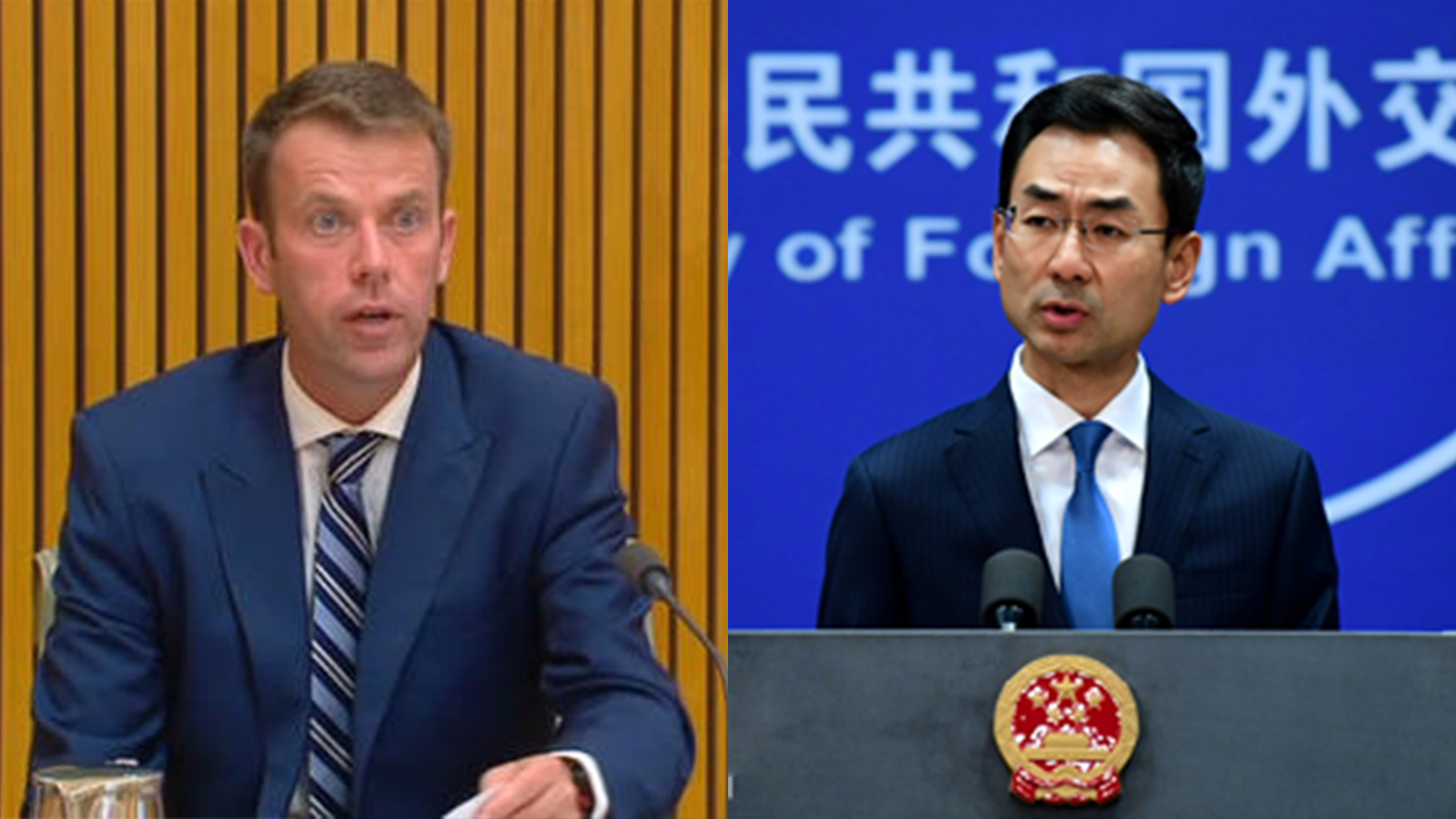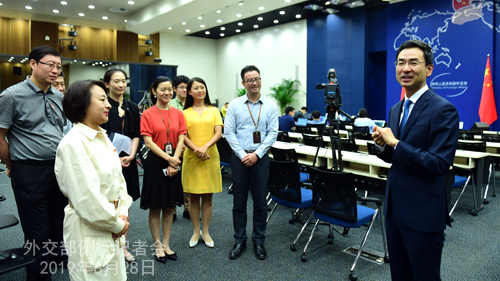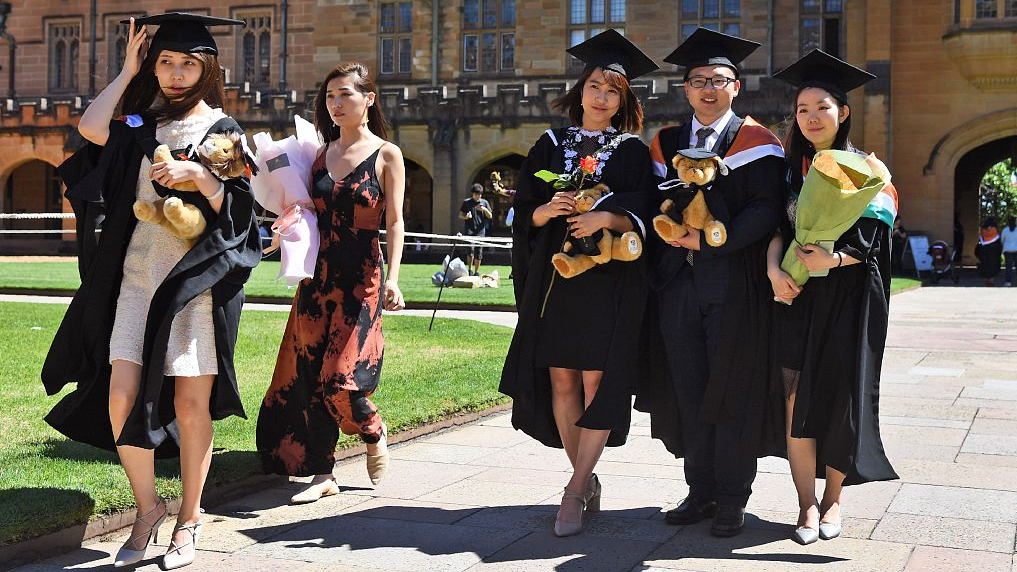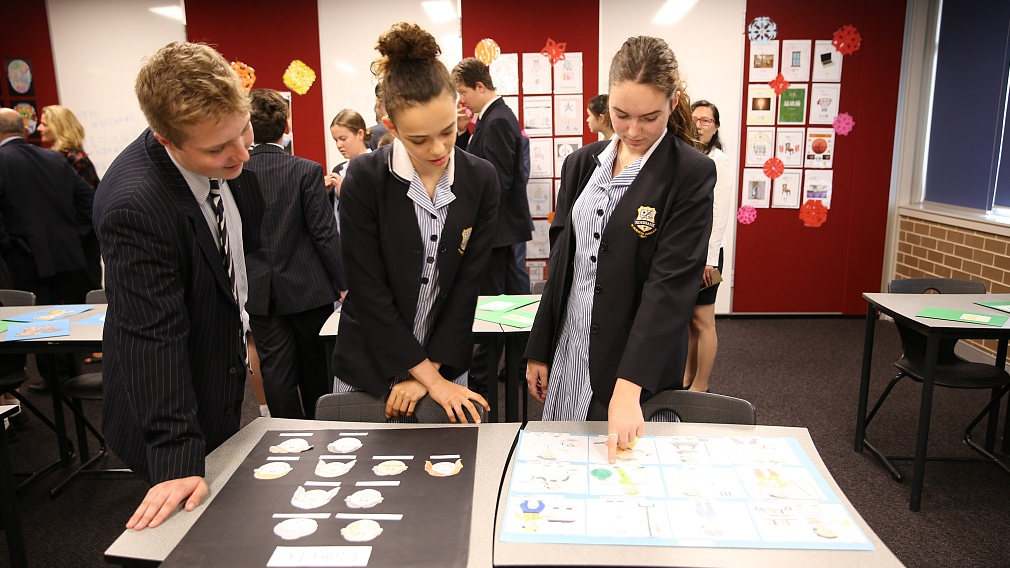

Beijing on Wednesday refuted Australia's reported concerns over "Chinese infiltration" while urging Canberra not to "politicize educational cooperation."
The Chinese reaction came after Australia announced it has formed a task force to protect its universities from foreign interference, a move that some Australian and other international media claimed were aimed at countering alleged "Chinese influence" on Australian campuses.
"As we responded to many similar questions before, 'China's infiltration in Australia' and other accusations simply have no basis at all," Chinese Foreign Ministry Spokesperson Geng Shuang told a regular press conference when asked to respond to Australia's move.
"Politicizing educational cooperation and setting up obstacles will do no good and gain no popularity. We hope Australia will view its cooperation with China in an objective manner, cherish the outcomes and make more efforts towards boosting friendship and trust between our two countries," he added.

Chinese Foreign Ministry Spokesperson Geng Shuang (R) interacts with members of the media during a press conference in Beijing, August 28, 2019. /Photo via China's Ministry of Foreign Affairs
Read also: China reiterates its defensive defense policy after an Australian think tank report
Earlier on Wednesday, Australian Education Minister Dan Tehan announced the formation of the task force amid alleged concerns over "Chinese influence" at the country's universities, according to multiple media reports. Chinese students are the largest group of foreign students in Australia.
The move envisions Australian universities to work with security agencies to ensure they are protected from foreign "interference". It came after reports of clashes between students from Chinese mainland and those from Hong Kong Special Administrative Region on Australian campuses over the current situation in Hong Kong.
Related story: Chinese students rally across Australia to voice support for China
"Universities are an attractive target given their research across a range of fields and intellectual property this research generated. The task force would ensure universities had sufficient cyber defenses," Tehan said in a speech in Canberra.
Tehan revealed that the task force will comprise officials from the universities, security agencies, and the government. It will have a cybersecurity working group aimed at protecting university networks against hacking and unauthorized access. The task force will also include a working group on research and intellectual property.
"Our government is taking action to provide clarity at the intersection of national security, research, collaboration, and a university's autonomy. Universities also understand the risk to their operations and to the national interest from cyberattacks and foreign interference and we are working constructively to address it," he added.

A group of Chinese students pose for photos after graduating from a course in commerce at Sydney University, Sydney, Australia, October 12, 2017. /VCG Photo
Read also: Chinese students oppose anti-Beijing approach in Australian universities
Australia earns about 24 billion U.S. dollars annually from foreign students, with China accounting for nearly a third of that figure. Latest Australian government data puts the total number of international students this year at 630,247, of which 182,555 were Chinese.
Last week, amid reported concerns over growing "Chinese influence" in its universities, Australia's most populous state, New South Wales, ended a Chinese language program run in partnership with China's Confucius Institute.
The Confucius Classroom language and culture program, which was offered in 13 public schools across NSW, was replaced by a state government-funded program.
Reacting to the development, China's Consulate-General in Sydney said in a press release that it is concerned over the decision and demanded for a clarification from the NSW government. It said the Confucius Institute Program was established in the spirit of mutual respect, friendly consultation, equality and reciprocity, and the relevant cooperation is open and transparent, and adheres to laws and regulations.
Meanwhile, several Australian universities and teachers' associations voiced their support for the programs being run by China and Australia under the Confucius Institute.

Australian students are seen learning Chinese at a Confucius Classroom in the 150-year-old, Rosebank College, Sydney, October 11, 2017. /VCG Photo
The latest squabble comes even as tensions between Beijing and Canberra soared after China last Friday arrested Australian citizen Yang Jun over espionage charges.
Earlier this month, an Australian think tank report portrayed China's long-range missiles as a "threat" to the Western Pacific, which was rejected by Beijing.
In recent months, Australia has made several accusations against China ranging from interference in domestic politics through political funding to linking Beijing with "sophisticated" cyber-attacks on Australian political parties and parliament.
China has repeatedly and vehemently dismissed such "irresponsible" and "baseless" accusations as an attempt to "tarnish" Beijing's reputation while maintaining that it has no intention to interfere in Australia's internal affairs.
"China always follows the principle of mutual respect and non-interference in each other's internal affairs when it develops friendly cooperation with other countries. We have no intention of interfering in Australia's internal affairs or exercising influence in its domestic politics through political donations," Geng Shuang had previously said.
Read also: Beijing rejects Australian media claims on Chinese billionaire Huang Xiangmo as 'hearsay'
(With input from agencies)
(Cover: Australian Education Minister Dan Tehan (L) and Chinese Foreign Ministry Spokesperson Geng Shuang. /CGTN Photo)

Copyright © 2018 CGTN. Beijing ICP prepared NO.16065310-3
Copyright © 2018 CGTN. Beijing ICP prepared NO.16065310-3